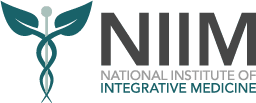Professor Avni Sali AM MBBS, PhD, FRACS, FACS, FACNEM
May 2023

One of the most fundamental wellness strategies we can consider is the development and maintenance of a strong immune system. It is paramount to have a normal immune system for the maintenance of health. Especially in winter, with its typical increase in the incidence of colds and flus, we can be proactive with regards to our immunity. However, a healthy immune system is also an essential consideration every day of the year, as immunity plays an important role in the prevention and treatment of acute and chronic illnesses such as infections, cancer and other immune disorders such as autoimmune illness. Immunity also has a major role in allergy disorders.
What is the Immune System?
When our Immune system doesn’t function properly it can lead to diseases and autoimmune disorders. Our immune system is vital and complex. It protects and fights against infection and harmful changes in our body that can make us ill. It is made up of various organs, tissues, cells and proteins with specialised roles in the defence against infection, cancer and auto-immune diseases. Immunity can be depressed or hyperactive, both disorders can lead to disease.
Its complex relationship of immunity with the psychological, neurological, endocrinological, gastrointestinal and cardiovascular systems, can influence it’s function.
Immune depression can increase the chance of infection as well as cancer. Immune hyperactivity can increase allergies such as asthma, autoimmune diseases such as type 1 Diabetes, Multiple Sclerosis and Rheumatoid Arthritis.
There are two types of immunity – the innate immune system (non-specific)and the adaptive (acquired) immune system. The innate system refers to our body’s first line of defence against germs entering the body. We see the effect of innate immunity when, for example, redness occurs around a cut in the skin. The innate system release cells that are responsible for inflammation (an initial part of the body’s protective mechanism) and natural killer cells which can destroy viruses, bacteria or cancer cells.
The second type of immunity is adaptive immunity. Adaptive immune responses improve on repeated exposures to a given infection or antigen. An antigen is any substance that causes the immune system to produce antibodies against it. An antigen may be a foreign substance from the environment such as chemicals, bacteria, viruses or pollen.
The body will produce either a cellular (T-cells, B-cells) or humoral (antibody) response.
Infections generally will trigger a fever, raising the body temperature. Fever will trigger an immune response and hence has an important role in fighting the infection. There are concerns that immediate suppression of a fever, could influence the immunological response. The severity of the fever can determine whether to reduce at an early stage.
How do we start to strengthen our Immune System?
Lifestyle
We need to evaluate our lifestyle and how this is influencing our immune system:
- Stress
- Lack of sleep
- Lack of sunshine – Vitamin D deficiency
- Exercise – too little or too much (extreme) exercise
- Obesity or being underweight
- Poor nutrition
- Environment, including
- poor housing and/or living conditions such as overcrowding
- proximity to traffic pollution, mould illness in damp/flooded areas, etc
- chemical sensitivities
- exposure and pollutants – occupational, industrial, pollution
- smoking
- Medications – especially immuno-suppressors and chemotherapy medications
- Exposure to infections, such as bacterial, fungal, viral and parasitic infections
- Nutrient deficiencies, e.g. vitamins A, C, D, E, B6, B12, folate, zinc, iron and copper. However, all micronutrients are important for proper immune function.
Any change in lifestyle that modifies the above risk factors will enhance immunity.
Stress
The connection between stress and depression and health is best explained through the disciplines of Psychoneuroimmunology (PNI) and Psychoneuroendocrinology (PNE). Stress and depression influence the body through the brain – PNI is the study of how the mind influences the immune system (to be normal, abnormal or hyperactive) and PNE describes how the mind influences the body’s hormones.
Sleep
Poor sleep is associated with a greater susceptibility to most illnesses. The natural sleep hormone melatonin is immune-modulating, so sleep disruptions have an immediate effect on the complex interrelationship between hormones and the immune system. Poor sleep is associated with a multitude of health problems and is a common complaint for many Australians today. Sleep is essential for good physical and mental health. Immunity can be enhanced by ensuring regular and restorative sleep patterns are maintained. It is essential that poor sleep is treated.
Gastrointestinal Health
Strategies for better health should ideally begin with taking care of the gut. Gut bacteria (flora), of which there are approximately 80 trillion, are in constant communication with our immune cells with 70-80 percent of all immune cells in the human body located in the gastrointestinal-associated lymphoid tissue (GALT). Research now provides us with a better understanding of the interaction of bacterial species and the immune system. This represents a somewhat paradoxical shift – from the belief that the immune system controls microorganisms to the understanding that it is the microorganisms that control the immune system. Supporting GALT with optimised micro flora is therefore key to our ability to fight diseases and ward off common infections. A key problem with antibiotics and chemotherapy drugs is that they destroy the normal gut flora, which in turn leads to immune disturbance. The gut flora not only influences the immune system, but can also influence virtually all body systems, for example the brain and weight (metabolism).
All of the systems in the body, including the gastrointestinal system, are influenced by lifestyle, hence how we live affects how well our body responds to the threat of pathogens and disease.

Exercise
Consistent, moderate exercise maintains good blood flow and stimulates the immune system as well as helping alleviate stress.
Essential Vitamins
Vitamin D and the sunshine effect
Originally vitamin D deficiency was only regarded to be important for bone health. However, it is now understood that this vitamin is actually a complex vitamin that is intricately involved in the integrity of the innate immune system, plus every other body system. A growing worldwide body of research studies into Vit D supplementation and impact on respiratory viruses, supports this.
We know that a high number of Melbournians are deficient in Vit D during winter, which is likely to account for the higher levels of viral infections. Vit D supplementation is safe, easily available and cost-effective.
Vitamin C
Vitamin C can reduce the duration and severity of a viral infection such as a cold. It is possible that a high dose of vitamin C may also prevent the onset of a cold. It has been found to improve components of the immune system such as antimicrobial and natural killer cell activities. Vit C can be antibacterial and antiviral at high doses.

Essential Herbs
Echinacea
There is preliminary evidence that echinacea may be beneficial in the early treatment of the common cold. Studies indicate echinacea can decrease the length of a flu-like illness, as well as reduce the frequency and severity of upper respiratory tract infections. It can be used for both prevention and treatment.
Astragalus
Astragalus is a 2000-year-old Traditional Chinese Medicine herb used to enhance immunity and rejuvenate the body and its vitality in the recovery of illness. It is antioxidant, anti-viral and helps rebalance gut flora. Clinical trials showed astragalus reduced the incidence and duration of colds.
Olive Leaf Extract
Olive leaf extract can suppress a number of viruses, including those that cause the common cold. It has been reported to improve immunity by increasing natural killer cell function, and to be effective against viruses such as HIV, hepatitis B and C, and herpes. Preliminary research also shows benefits for artery disease, dementia prevention and other disorders.
Tumeric (Curcumin is the active ingredient)
Highly anti-inflammatory and helps bolster the immune system by increasing the immunomodulating capacity of the body.
Essential Minerals
Zinc
Zinc is critical for cell function and directly influences the GALT and the mucosal barrier to inflammatory cells. It regulates the immune system and even a mild deficiency can result in immune dysfunction. Many studies have demonstrated the beneficial effects of zinc supplementation in the management of the common cold, cold sores, influenza and acute respiratory infections.
Selenium
Works as an antioxidant and plays an important role in inflammation and immunity. It boosts white blood cells, which improves the body’s ability to fight illness and infection.
Nutrition
Many foods are immune-modulating based on whether they have an anti-inflammatory or pro-inflammatory effect.
You can boost your anti-inflammatory food intake with: Omega 3 as found in oily seafood; low-GI foods; antioxidant rich foods (especially those high in vitamins A, C and E); high fibre foods; increased monounsaturated fats (nuts and avocados are good); restricted total calorie intake; more fruit and vegetables; herbs such as garlic, ginger and turmeric; drinking green tea, etc.
Pro-inflammatory foods are those with: excess energy (high calories), high-GI, high trans fats, saturated fats, excessive salt and refined carbohydrates, as found in most processed and fast foods. Also excessive alcohol consumption, some dairy foods and food additives such as artificial colours, flavours and preservatives can be pro-inflammatory.
Some immunity superfoods include:
Feed your gut flora with both
- Pre-biotic foods which feed the friendly microbes in the gut, e.g. onion family, honey, beans, lentils, chick peas, soybeans, artichoke (Jerusalem), asparagus, raw oats, unrefined wheat and barley.
- Pro-biotic foods are foods that contain friendly microbes, e.g. Yoghurt, Kefir, miso and fermented foods.
Mushrooms
There are many types of mushrooms available. They are amongst most powerful immune stimulating foods, high in selenium and B vitamins like riboflavin and niacin. These minerals and vitamins are necessary for the immune system to work in tip top form. Mushrooms are also high in polysaccharides, sugar-like molecules that boost immune function. Mushrooms are also high in Vitamin D, if exposed to sunlight.
Nuts
A great variety of nuts are available, these contain many nutrients essential for a healthy immune system.
Greens
Dark, leafy greens such as Spinach, Kale contain contain high levels of vitamins A, C, K, as well as beta carotene, folate and fibre and other nutrients, associated with reducing inflammation and increasing disease-fighting cells, which help support your immunity.
Cruciferous Vegetables
Such as cabbage, Cauliflower, Brussel Sprouts, Bok Choy, Kale, Radish etc., are supercharged with vitamins and minerals to boost our immune systems. High in beta-carotene, potassium, magnesium, zinc, and iron, B vitamins (B1, B2, B3, and B6), as well as Glutathione and fibre.
Citrus Fruits
Such as Orangs, Mandarins, Lemons, Grapefruit, Limes etc. are high in Vitamin C to
improve immunity and fight infections.
Your body doesn’t produce or store it, you need daily vitamin C for continued health.
Vitamin C is a powerful antioxidant which helps strengthen the body’s natural defences.
Allium – Onion family
Garlic has antibacterial, antiviral, and anti-fungal properties. The antiviral properties may be helpful in reducing the severity of colds, flu or viral infections.
Fermented garlic may also help lower blood pressure and slow down hardening of the arteries. Garlic’s immune-boosting properties seem to come from a heavy concentration of sulfur-containing compounds, such as allicin. Garlic contains compounds that naturally act to destroy bacteria and infection, which helps support your immune system. Onion family also feeds the gut microbes supporting gut health.
Cocoa
Cocoa and dark chocolate are loaded with healthy nutrients.
The higher the concentration of cocoa, the more positive the impact on immunity, cognition, memory, mood, and other beneficial effects. It is packed with flavonols which improve immune function because of the anti-inflammatory function.
Naturally there are many other great health foods that will enhance immunity and contribute to overall health and wellbeing.
Seeking the advice of an Integrative Healthcare Practitioner is a good start to ensuring you get the best evidence-based health advice to keep your good health on track.
The immune system changes as we age and has different demands placed upon it during different seasons. It is disturbed by malnutrition, the normal process of ageing, physical and mental stress and undesirable lifestyles. There are many ways we can improve our immunity, and effective changes can start today by improving our lifestyle, nutrition and supporting the diet with proven immune boosting supplements. A strong immune system is a mirror of a healthy lifestyle. Preventative measures in the cold and flu season will also support optimal health and wellbeing.
The main parts of the immune system are:
- white blood cells – are important cells in destroying bad microbes such as bacteria, viruses, parasites etc.
- antibodies – help to fight the toxins bad microbes produce.
- complement system – a system of proteins which complements the work done by antibodies.
- lymphatic system –
- spleen
- bone marrow
- thymus.
The lymphatic system is a network of delicate tubes throughout the body. The main roles of the lymphatic system are to:
- manage the fluid levels in the body
- react to bacteria
- deal with cancer cells
- deal with cell products that otherwise would result in disease or disorders
- absorb some of the fats in our diet from the intestine.
The lymphatic system is made up of:
- lymph nodes (also called lymph glands) – which trap microbes
- lymph vessels – tubes that carry lymph, the colourless fluid that bathes your body’s tissues and contains infection-fighting white blood cells
- white blood cells (lymphocytes).
Spleen
The spleen is a blood-filtering organ that removes microbes and destroys old or damaged red blood cells. It also makes disease-fighting components of the immune system (including antibodies and lymphocytes).
Bone marrow
Bone marrow is the spongy tissue found inside your bones. It produces the red blood cells our bodies need to carry oxygen, the white blood cells we use to fight infection, and the platelets we need to help our blood clot.
Thymus
The thymus filters and monitors your blood content. It produces the white blood cells called T-lymphocytes.
The body’s other defences against microbes
As well as the immune system, the body has several other ways to defend itself against microbes, including:
- skin – a waterproof barrier that secretes oil with bacteria-killing properties
- lungs – mucous in the lungs (phlegm) traps foreign particles, and small hairs (cilia) wave the mucous upwards so it can be coughed out
- digestive tract – the mucous lining contains antibodies, and the acid in the stomach can kill most microbes
- other defences – body fluids like skin oil, saliva and tears contain anti-bacterial enzymes that help reduce the risk of infection. The constant flushing of the urinary tract and the bowel also helps.

Fever is an immune system response
A rise in body temperature, or fever, can happen with some infections. This is actually an immune system response. A rise in temperature can kill some microbes. Fever also triggers the body’s repair process.
